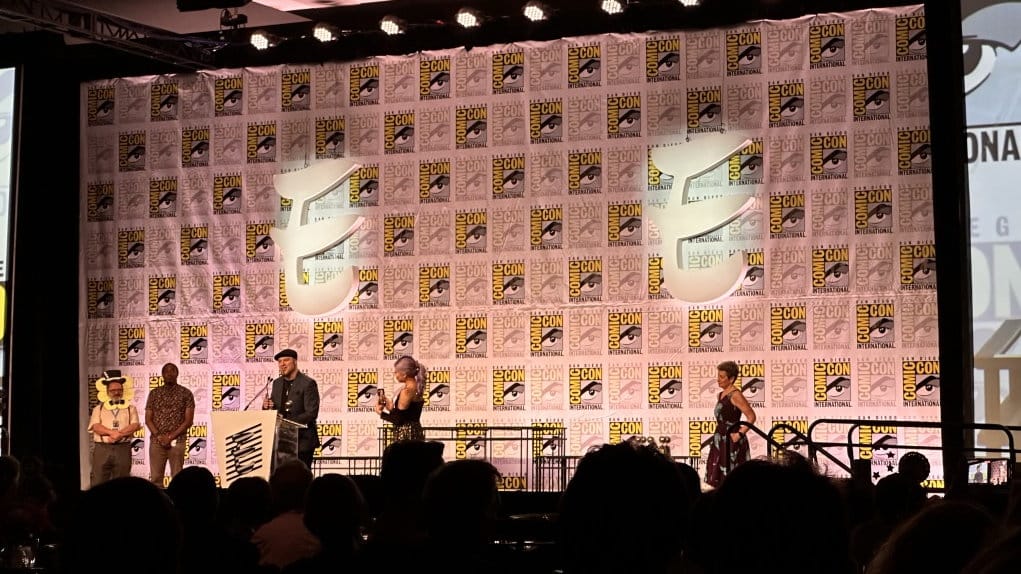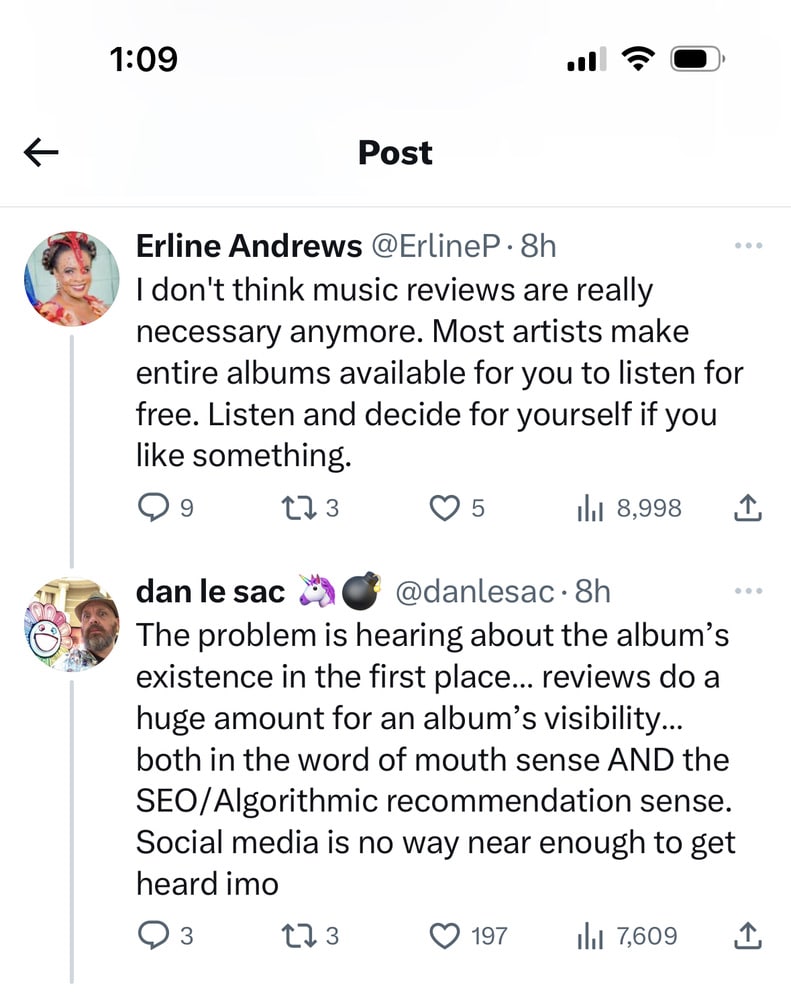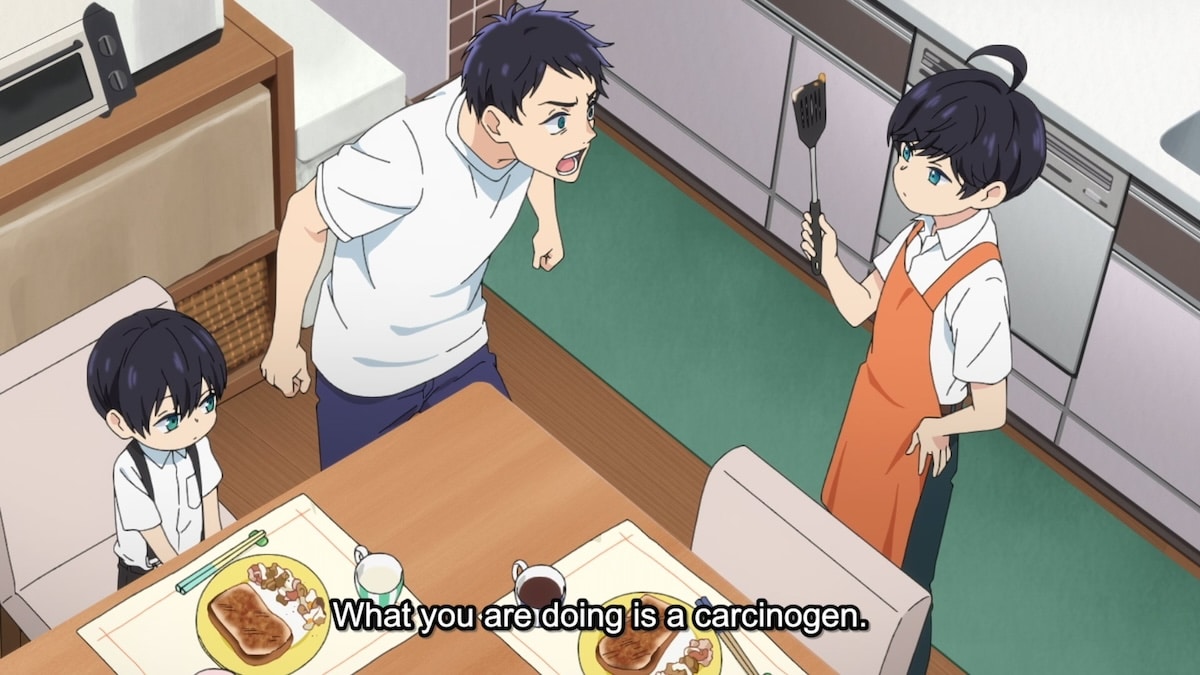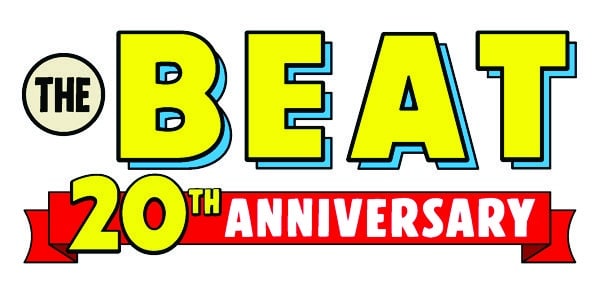
My colleague Rob Salkowitz said it best when he wrote “There’s an old saying that you should never pick fights with people who buy ink by the barrel.” Eliminating the “best Comics-Related Periodical/Journalism” category in the 2024 Eisner Awards was sure to generate a ton of tweets and outrage from people who spend their lives at the keyboard. In addition to Rob’s piece, there was the original report at Popverse, and then TWO follow-ups there. Graeme McMillan gave his own thoughts, and then Chris Arrant fired up the Wayback Machine to point out that the category had been removed at least twice before. In 2001, Best Comics-Related Periodical was dropped, but it was back the very next year. But:
Just one year later for 2003’s awards however, both the ‘Best Comics-Related Periodical/Journalism’ and ‘Best Comics-Related Book’ categories were dropped in favor of a more generalistic title, ‘Best Comics-Related Publication (Periodical or Book)’.
In 2004, the judges at the time reversed the system again – restablishing both categories.
For those who came in late, here’s what’s happened so far:
- On January 10, the call for submissions for the 2024 Eisners went out, and Arrant noted that two categories were absent, Memoir (which had just been left off by accident) and Journalism. A subsequent explainer by Eisner administrator Jackie Estrada came in:
- “When reached for comment, Eisner Awards administrator Jackie Estrada directed attention to the above caveats and clarified that the Periodical/Journalism category has been combined with Comics-Related Book, writing, “For comics-related periodicals, they have been combined with the comic-related books. Online journalism sites are welcome to submit in that overall category.”
- Then came the hueing, the crying, the garment rending and the angry tweets.
https://twitter.com/urbane_turtle/status/1745152393518444810
Glad to hear Memoir isn't dropped (there are just so many good ones that it really deserved its own category separate from Reality Based), but feeling a sorta way about the Journalism award being dropped/combined with Book. Feels like a major loss. https://t.co/VnqpnWGhU2
— Tiffany Babb (@explodingarrow) January 10, 2024
Comics press don't do what they do for awards – they do it because they love comics. But to remove the one category that includes them in the Eisners is a mistake that should be fixed. https://t.co/1Ymc1SQTvs
— Gregg Katzman (@GreggKatzman) January 10, 2024
This is so true. I have almost 300 episodes of my podcast to prove it, but I think dropping Comics Journalism is a sad indictment of the mainstream pop-culture press. It used to be easy to get genuine comics coverage, but now it’s an uphill battle against film, TV + video games. https://t.co/npN5PEdrYA
— Chris Thompson (@PopCultureHound) January 10, 2024
…you get the idea. Not even angry, really. Just sad.
In his piece, Rob listed a number of very good reasons for continuing to honor comics writing:
Covering comics on an ongoing basis is as fundamentally different from writing books (or contributing to long-form publications) about comics as doing a daily strip is from creating a graphic novel. Publications and the journalists who write for them have to make sense of industry news, keep people’s attention on a daily basis, maintain editorial standards and a consistent voice across different contributors, and so many other things that authors don’t.
So it’s peculiar that the Eisner Awards, which insists on important distinctions between “webcomics” and “digital comics” and between single issues, miniseries, and continuing series, has decided that in this case, all that stuff you people who write about comics do is basically the same. In effect, those of us who write about comics on a daily or weekly basis are competing against publications that have long lead times, or authors who have spent years writing a biography of Stan Lee, a history of underground comix, or a monograph on African-American creators of the 1940s and 50s – something that does not fairly honor the work of either side of that equation.
Graeme’s thesis was that the category was broken and no one could be bothered to fix it:
My problems with the Eisners’ journalism category as-was — which is all we have now, it seems — is that it was so ill-defined as to be practically useless. The clue was in the category’s name, as much as anything: while periodicals can include journalism, “periodical” and “journalism” are not actually the same thing, leading to things like last year’s nominees in the category, which included two magazines featuring essays and interviews based around material published decades earlier competing with one individual journalist’s combined reporting across multiple outlets. It had become a category with competing apples and oranges, and specific rules to ensure that they held together, however unlikely that was.
That seemed to be that BUT there was also THIS tweet from Popverse:
For those following along with the Eisner Awards’ recent decision to kill off the Comics Journalism category (‘Best Comics-Related Periodical/Journalism’), there’s more to the story coming very soon. Things are amiss.
What the what now? Was this referring to the two subsequent stories or something else? My investigation has gone nowhere on that. So perhaps a new bombshell will have dropped by the time you read that. But to come back around, everyone has written some very smart and relevant things, but I haven’t had my smart, relevant take yet, so here goes!
And to be clear, I was an Eisner judge (like Chris and Graeme), all the way back in 1993, the Comic-Con website tells me, because I knew it was the 90s but couldn’t pin down a date.

I was an Eisner nominee (like Rob and Graeme) back in 2011 and 2012, which I also had to look up. Both years were the occasion to buy a new frock, my one takeaway since I lost both times. I presented an Eisner once, year unknown, but it was when they were presented in a ballroom at…I think the Hyatt? The only reason I know this is because there’s a photo of me giving an award to Archie Goodwin, with Will Eisner standing behind us. (That photo is here somewhere on my hard drive but I don’t have time to dig it up now, alas.)
I have BEEN to almost every Eisner Awards ceremony since the first because that’s how I roll. Every once in a while I miss one, but I’m a staunch award presentation supporter, for however long it takes.
To begin with, as Arrant reported, the Eisners change categories all the time, and a trend to shorten the ceremony has been underway for a while. Moving the Hall of Fame inductions to a separate ceremony (with its own judges) is a part of that, and if you were looking to trim categories….look, I gotta be honest, best comic book website is probably the first one I’d cut, too. Then I’d think about cutting Best Inker and break Banky’s heart all over again.
And let’s be even more brutally honest: the Oscars don’t give best Film Journalism awards. The Grammys don’t give Best Music Journalism awards (although they do give one for best liner notes.) The Emmys don’t….you get the idea.
It’s really quite absurd for “The Oscars of [fill in the blank]” to give an award to the journalists who cover that medium.
Except…
This is comics.

Comics are a community as well as an art form, and the Eisner are as much about that community as about the artform in a lot of ways. The ranks of great comics publishers who started out as comic journalists are legion: Gary Groth, Chris Staros, Paul Levitz, Guy Delcourt, Jacques Glénat. Who am I missing?
If Bilge Ebiri were to suddenly announce he was going to direct a movie it would be very odd. If Jon Pareles suddenly announced he was putting out an album of golden oldies, people would cringe. When a comics journalist announces they are going to put out a comic everyone is like “oh that’s great! When is the Kickstarter?”
In other words, comics folks are generally not as class conscious as some other artforms. It’s all fluid. If you’re going to honor all the craftspeople and reprint makers and designers and so on, honoring comics journalists seems to fit in with the Eisners way more than any other major award. (And several other comics awards give out some variety of “Best Comics Journalism” awards, with no one batting an eyelash.)
There’s another reason giving out that Eisner made some sense: it’s all we got. The entire profession of journalism – writing about things that happen in the world with either an objective or subjective viewpoint – is under attack, both from “content creators” who monetize platforms that originated to support some form of journalism, and those very platforms, that are making it nearly impossible to earn a living wage doing it by prioritizing AI and SEO tricks.
I’m sort of glad I delayed writing this because yesterday came the shocking news that Pitchfork was being merged with…GQ and half the staff laid off. This led to an outpouring of sadness on social media. Sure, those Pitchfork guys (always guys) were snobby and self-absorbed and could destroy entire careers in their heyday, but those writers loved music. They created entire eras of music, and made stars and, heck, whenever I wanted to find something new to listen to I would go to Pitchfork’s best new music and find something.
But thanks to today’s brutal algorithms, the rise of streaming and TikTok, and general disarray of the music industry, it wasn’t working anymore. I can’t think of a sadder fate for an indie music site then being merged into Gentleman’s Quarterly, but this is where our technocratic overlords have led us.
Seeing the music journalism profession gutted is a shocker, I gotta admit. Music journalists have always ranked way, way, way, way higher on the status scale than comics writers. There are famous world changing music writers! (Lester Bangs, Leonard Feather) There are many writers about music who still make a living doing it! (I can’t name any but I’m sure they exist.) They even made a much loved MOVIE about a music journalist! Comics journalists can only aspire to write about movies or music and make a living writing, something you can’t do in comics.
In all the lamentation I did find this corker of an eXchange:
Dan Le Sac is a musician whose album got an 0.2 rating on Pitchfork, but even he knows “we need more journalism not less.”
We’re in a crisis of discoverability, and everyone, including comics publishers, know it. “Buzz” is still essential to breaking out of the pack and gaining a following. And “trusted sources” that give you a reliable guide, are still valuable, whether you know it or not. Someone has to influence the influencers.
I could write another 1500 words – or 15,000 words really – about the decay of original writing, already tenuous but absolutely being gutted and the entrails smeared along the road in the Shift to AI. For instance:
https://twitter.com/jason_koebler/status/1747325457966789119
a new, year-long study found Google Search really has gotten worse, and top-ranking sites are “on average more optimized, more monetized with affiliate marketing, and they show signs of lower text quality” Also evidence of AI-generated top-ranking results
I’ve noticed this myself….I have to keep scrolling past tons of sponsored results and miserable Wikipedia scraping content farm aggregators to get to anything useful any more when I search. The irony of having to resort to the reeking pee-nado that is Twitter for information on these topics is not lost on me.
And aside from losing our tatty little Eisner Award, times have never, ever been worse for comics writing on the internet, and I say that as someone who has written some “state of the industry” piece every year for 20 years. Newsarama is no more. CBR, I’m told, is limited to a handful of stories about comics a day. I know the Popverse gang is doing its best but their front page is 90% media headlines. I was told this week that comics coverage has been cut almost entirely at another fairly prominent pop culture site. Comics news just doesn’t get any traffic and the cold equations say that it doesn’t pay so out it goes.
I do salute Comicbook.com, which manages to have a fairly robust comics section every day, even if it’s buried in approximately 2000 other stories. Of course, Icv2.com is here for the long haul, and did a stunning job with their spotlight on the history of the Direct Market last year. And you know, there is one other site, but since they never link to their sources, I won’t link to them.
That leaves us rough and tumble scrappers who are doing it for love. I salute my peers at Graphic Policy, AIPT, Broken Frontier, The Comics Journal, Women Write About Comics, Comicon.com, and other sites I can’t think of right now because, incredibly, when you search for “comics news” they don’t even show up in the first 100 results. The BBC and Mashable do though.
That’s what we’re up against, folks. Google has absolutely pulverized small, independent websites unless you aggressively game the system with SEO/SERPs trick, and AI has made that even more difficult, and made original human-crafted content even harder to find. The blogosphere is dead, and unless you want to work side by side with Nazis the newsletter revolution has stalled out.
And now, not even an Eisner Award nomination.

I always end these saying the same thing: I’m not going anywhere. They will carry me out on my shield, crushed beneath a stack of teetering Omnibii from Image. This is what I do. It’s fun writing things, and I meet cool people and get to read cool books.
Truthfully, the collapse of the military industrial comic book site complex is great for The Beat. Since we never needed an audience of more than thousands (not millions) we’ll keep serving up our fresh content to those thousands, and maybe, if Google looks the other way, those people can find our content.
I’m cool with never winning an Eisner, or ever getting nominated again. When I got on stage with Archie Goodwin and Will Eisner in front of, at best, a few hundred people it was a lot different than the huge Indigo Ballroom presentation today. Of course, like everyone, I imagine having my moment to speak in front of my peers, but that’s what I’m doing right now. You just can’t see my dress.
In closing: SUPPORT INDEPENDENT COMICS JOURNALISM ON PATREON. Or write to us for our ad rates. Smash that like button! See you in San Diego!
PS: According to Wikipedia these are other Eisner categories that have been retired over the years although the list only goes up to 2011.)
Past awards[edit]
- Best Graphic Album (1988–1989)
- Best Art Team (1988–1989)
- Best Black-and-White Series (1968–1991)
- Best Editor (1992–1999)
- Best Comics-Related Product/Item (1992, 1994–2002)
- Best Comics-Related Periodical/Publication (1992–2000, 2002–2007)
- Best Archival Collection/Project (1993–2005)
- Best Serialized Story (1993–2006)
- Talent Deserving of Wider Recognition (1995–2006)[11]
- Best Writer/Artist — Humor (1995–2008)
- Best Title for Younger Readers/Best Comics Publication for a Younger Audience (1996–2007)
- Best Writer/Artist — Drama (1997–2008)
- Best Comics-Related Sculpted Figures (1999)
- Best Comics-Related Publication (Periodical or Book) (2003)
- Best U.S. Edition of International Material–Japan (2007–2009)
- Special Recognition (2007–2008)]
- Best Writer/Artist–Nonfiction (2010)
- Best Adaptation from Another Work (2010–2011)









This shouldn’t have ever been a real award. Comics news is the epitome of fake news, just press releases to shill for whatever company. I still have nightmares about the pandering puff pieces for Quesada and Alonso from 15 years ago. You can still attend, just get in the line with all the ‘great unwashed’ and wait like everyone else. Comics jouros have been abusing the label to get unlimited access to SDCC for years now and it’s been abused.
You seem like a fun guy.
Yes, I, for one, got into comics journalism for those sweet, sweet convention press passes. A reward far greater than I could get from any of the more lucrative and popularly appreciated professions, which is all of them.
In truth, I’m the kind of trifling mediocrity who was never going to win an award of any stripe, so the change isn’t likely to change my own life for better or worse. Still, it was nice to know it was out there, while it was.
Just a quick acknowledgement that, thanks to The Beat, there are a good 2 dozen titles I find out about, and read, every year, because you folks bring attention to them.
Otherwise they’d slip by me — even though I follow Substack accounts for a number of comics pros to find out when they’re releasing new titles. If not for you, I’d have missed out on some truly amazing stuff. (E.g., Mark Russell’s books, Newburn, The Forged… and those are just the ones out right now).
And the journalism on comics retail and publishing issues, creators’ issues and how the industry is doing — I’m not finding that anyplace else. (Certainly not on the BBC.)
So… thank you. And if there’s anyone from the Eisner committee reading this, please bring this category back next year. I’d recommend following the terminology Heidi uses, and just call it award for comics journalism.
I can’t picture why they did that. Comics related book usually gets a lot of submissions, and this seems like apples and oranges. For me, the journalism category would be ideal if it focused on individuals that are doing great reporting.
With respect Heidi, the comics “journalism” sector has largely evolved into sites that regurgitate press releases from publishers. Or have unpaid ‘writers’ re-write said press releases, which lead to critical errors like your own site’s recent crediting of Joe Simon as the sole creator of Captain America.
The Eisner Awards are a glorified circle jerk anyway, created to simply validate an industry’s own feelings of insecurity and desperation to be taken seriously by a mainstream that never did. When you look at that as the catalyst for their existence, its easier to shrug this off. Outside of your rare pieces like this and a Brian Hibbs lecture, what journalism is the Beat putting forth, honestly? It’s understandably a pop culture dispatch now.
But yeah, the comics journalism sector is laughable and most people operating it are compromised and biased: whether its due to nostalgia or not wanting to risk alienating a publisher or creator (or all of these things), the amount of misinformation and downright falsehoods that are allowed to get out- and prosper- is shameful.
Everything that is happening to the comics industry and to comics retailers is 90% a self-inflicted wound with foundations going back decades. This is what happens in an back-patting circle.
Four Color, if you hit the “Column” link on the menu you’ll see a bunch of original writing by our staff over the years. What some people call “regurgitating press releases” is also called “news” and we try to present it as entertainingly as possible and as often as we can go beyond the pr for context and information.
Since you seem to be alluding to the idea that somehow comics journalism sites being positive destroyed the comics industry….maybe you can explain just how that works? Because it’s a bit like saying “The tide went out….and that’s why Our Flag Means Death got cancelled.” There’s no logical connection I can see.
Comments are closed.